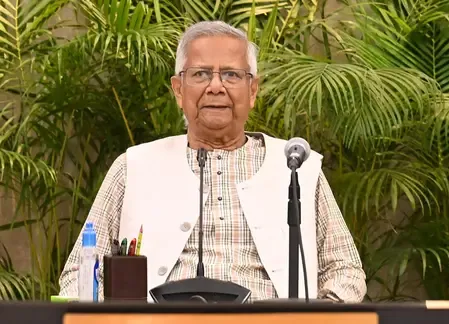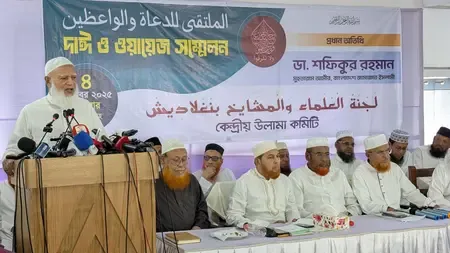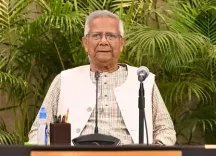Are Protests in PoK and Balochistan Indicating the Decline of the Pakistan Army?

Synopsis
Key Takeaways
- Public dissent is rising against the Pakistan Army due to corruption.
- The protests in PoK and Balochistan may be pivotal.
- The army's efforts to suppress dissent may not hold.
- Corruption allegations are widespread within military contracts.
- Historical comparisons to regional unrest highlight the potential for significant change.
New Delhi, Sep 30 (NationPress) The recent protests erupting in Pakistan-occupied Kashmir (PoK) highlight the severe disintegration of the Pakistan Army amidst escalating corruption. The military has long suppressed these issues to shield its corrupt officials, but the public is now taking a stand.
The corruption scandal within the Pakistan Army is not confined to PoK; it also stretches into Balochistan.
Despite internet blackouts and suspended phone services, news of the protests in PoK has reached global audiences. Tragically, at least 2 individuals have lost their lives, and 22 others have been injured due to police violence.
Indian officials assert that the Pakistani populace is increasingly frustrated with the overt corruption that plagues the Pakistan Army, particularly the pervasive culture of commission related to arms deals and development projects.
For years, the Pakistan Army has engaged retired officials to handle middlemen and facilitate commissions. This corruption remained hidden from the public eye, as these retired officials operated in secrecy.
Undeniably, the Pakistan Army is the dominant institution in Pakistan today, with Shehbaz Sharif acting as its puppet, facilitating this corrupt enterprise.
In 2015, Pakistan inked one of its largest naval agreements, the Hangar-class submarine project, valued at approximately $5 billion. However, the specifics of this deal remain vague, with no disclosure to Parliament or the public.
The corruption doesn't stop at defense contracts; it also infiltrates real estate. The Defence Housing Authority (DHA) has positioned the Pakistan Army as the largest property developer in the nation. With schemes worth millions of dollars, the DHA has evaded scrutiny, driving corruption to unprecedented levels.
The DHA enjoys a unique legal status that shields it from governmental oversight, allowing Army officials to engage in extensive corruption. This has incited frustration not only among the populace but also within certain factions of the army.
Indian sources indicate that corruption has reached its zenith under Field Marshal Asim Munir. Recently, a letter from The Guardians of Honour has brought to light the unrest within the army, accusing Munir of incompetence, corruption, and political oppression.
The unrest appears to have been triggered by the confrontation with former Prime Minister Imran Khan and the court-martial of Lieutenant General Faiz Hameed, ex-head of the ISI.
While Asim Munir has largely suppressed dissent, the facade is beginning to crumble. An intelligence report on the situation in Pakistan suggests that protests in Balochistan and PoK could prove pivotal for Munir and his colleagues. Signs indicate that unrest in these areas shows no signs of abating, and the situation may worsen.
Moreover, the army is apprehensive that issues like corruption, political meddling, and development could extend to major urban centers. With anticipated resistance, they will likely resort to severe force to quell dissent.
However, the army is also aware of the implications of events in Bangladesh, Nepal, and Sri Lanka. It has also recognized that it is facing significant challenges in Balochistan, having encountered embarrassment and substantial losses.
These developments are clear signs that the army's influence is gradually diminishing, compelling it to prepare for challenging times ahead.









